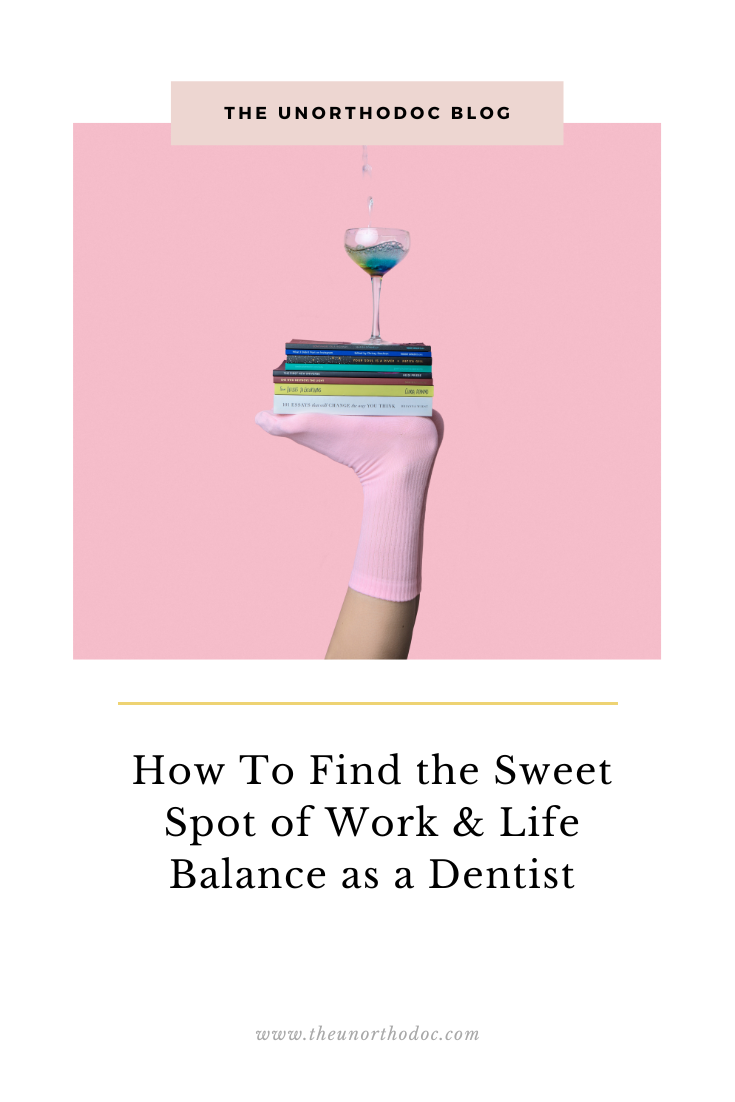How To Find the Sweet Spot of Work & Life Balance as a Dentist
A healthy work-life balance is one of the most sought-after goals of the modern age. About 20 years ago, it was quite easy to set reasonable working hours, take vacation days, and generally have time to spend with family and friends. Nowadays, however, with the speed that comes with the modern age of technology and the constant need to fulfill relentless ambitions, accomplishing a balanced life can be challenging.
Why is Work-Life Balance challenging for Dentists?
Achieving a good work-life balance is challenging for all professions, but perhaps the problem is more pronounced for dentists. This is because dentists who own their private practices generally have 2 active jobs: A dental practitioner and a practice manager, and between these, having time for oneself can be incredibly difficult , but very much necessary. Yes, some dentists choose a more corporate style of running their practice(s), acting more as an owner and manager rather than a practitioner which can make it a bit easier to achieve that balance, but for the average family dentist, the problem persists.
It’s not difficult to figure out of if your work-life balance is impaired. Check these:
Your number of working hours: On average, dentists tend to work 4 or 5 days per week, for about 7 hours per day, which sums up to be about 35 working hours per week. This is a good amount of working time that enables you as a dentist to fulfill your ambitions without causing damage to your physical or mental health. Personally, my sweet spot is 3 days per week. My schedule right now is 3 days one week, then 4 days the next averaging 24-32 hours per week. For now, this schedule allows a nice mix of time focused on work and ample time away from it.
Your number of days off per year: There is no specific number to place here, but on average, at least 150 days off per year (including weekends) is the minimum to achieve a good balance. Because I have a 3 day weekend every week and 2 full mandatory weeks off in a year, my minimum days off per year averages around 170, which to me is a reasonable amount of time on and off of work given that there are 365 days in a year.
Your quality of sleep: All work can be stressful, but dentistry is doubly so. Dentists are usually solo practitioners who spend a lot of time practicing alone, taking on the issues of the practice, their staff and patients. It can be isolating and also mentally and physically taxing. More of teen than not they think about the practice and cases at home (at night) which adversely affects their sleep. Poor sleep quality is a great indicator that you’re working too much.
Your overall general health: Stress is the leading cause of many health problems such as hypertension and strokes. When dentists work too much, that generally means they’re more stressed out, which makes them more vulnerable to these dangerous conditions. A few indicators of deteriorating health such as generalized weakness or constant headaches should be red flags that a different approach is needed.
Here are some tips to help you find the sweet spot of work and life balance as a dentist:
Prioritize self-care: As a dentist, you understand the importance of self-care, but it can be easy to neglect your own health and well-being when you're focused on taking care of others. Make sure to prioritize your own self-care by getting enough sleep, eating healthy, and exercising regularly. Set aside time for hobbies and activities that you enjoy and that help you relax.
Define your priorities: Take the time to define your priorities both in your personal and professional life. Determine what's most important to you and how much time and energy you want to allocate to each area. Make a schedule that allows you to accomplish your goals while still leaving time for relaxation and downtime.
Create boundaries: Creating boundaries is essential for achieving work-life balance. Set clear expectations with your staff and patients about your availability and work hours. It's okay to say no to non-emergency calls or appointments outside of your regular hours. Creating boundaries will help you avoid burnout and ensure that you have the energy to enjoy your personal life.
Delegate tasks: As a dentist, you may feel like you need to handle everything yourself, but delegating tasks to your staff can help you free up time and reduce your workload. Consider delegating administrative tasks or hiring additional staff to help with patient care. This will allow you to focus on the most important aspects of your practice and enjoy more personal time.
Use technology to your advantage: Technology can be a powerful tool for managing your practice and reducing your workload. Consider using appointment scheduling software, electronic health records, and communication tools to streamline your practice and improve patient care. This will help you save time and reduce stress, allowing you to enjoy a better work-life balance.
Achieving work-life balance as a dentist requires careful planning, prioritization, and a willingness to delegate tasks and set boundaries. By prioritizing self-care, defining your priorities, creating boundaries, delegating tasks, and using technology to your advantage, you can find the sweet spot of work and life balance that works for you and your practice. I hope this will help you create a life that you love!













